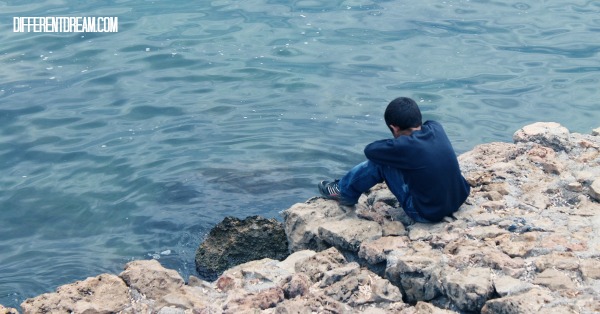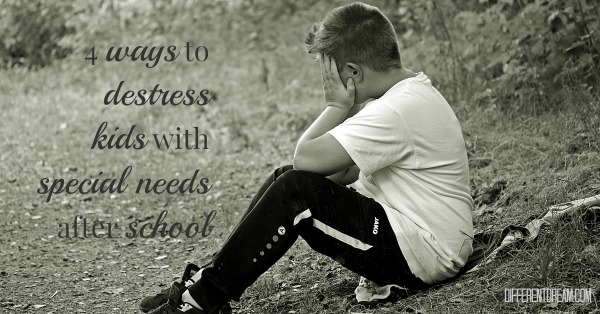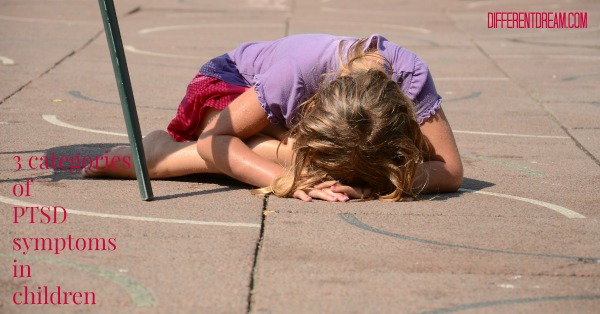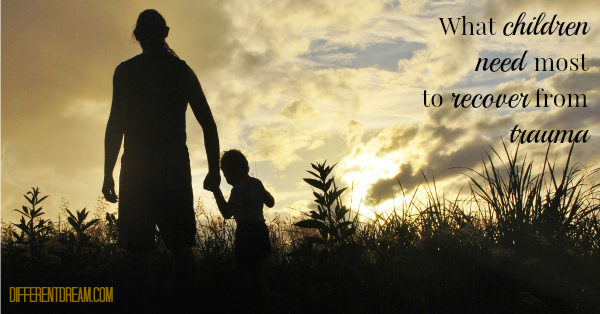The Sad Truth about PTSD in Children

For the first 52 years of my life, I had no idea children could struggle with post-traumatic stress disorder (PTSD). But in 2008 when my son, age 26, was diagnosed with this mental illness, I learned the truth. PTSD in children is real, and my son had been living with it for 26 years. His PTSD began when he had surgery less than a day after he was born.
“He won’t remember,“the doctors told us.
But, deep in his implicit memory, our son did remember. And though he’s gone through successful treatment and has learned to cope with the memories of the trauma he experienced as an infant, those memories will always be with him. He will never forget them.
The truth about PTSD in children won’t let me rest.
So today, which is PTSD Awareness Day, I am climbing onto my soapbox again. Just as I did a year ago. Just like I will next year and for many years to come. Because even though I and many others speak about PTSD in children frequently, and even though my book Does My Child Have PTSD? has been published and is widely available, too many children with PTSD go undiagnosed.
That is the sad truth about PTSD in children.
But the truth gets even sadder. The truth is that many children are correctly diagnosed with PTSD, but they aren’t treated. For a variety of reasons. Many parents can’t find qualified trauma therapists. Many parents delay treatment because they think they can’t afford it.
To read the rest of this post, click on over to the Not Alone website.
Do you like what you see at DifferentDream.com? You can receive more great content by subscribing to the quarterly Different Dream newsletter and signing up for the daily RSS feed delivered to your email inbox. You can sign up for the first in the pop up box and the second at the bottom of this page.
By Jolene
Jolene Philo is the author of the Different Dream series for parents of kids with special needs. She speaks at parenting and special needs conferences around the country. She’s also the creator and host of the Different Dream website. Sharing Love Abundantly With Special Needs Families: The 5 Love Languages® for Parents Raising Children with Disabilities, which she co-authored with Dr. Gary Chapman, was released in August of 2019 and is available at local bookstores, their bookstore website, and at Amazon.
Subscribe for Updates from Jolene
Related Posts
4 After School Tips to Lower Stress in Kids with Special Needs
Dr. Liz Matheis shares 4 tips to lower stress in kids with special needs and anxiety when they get home from school. Add your ideas in the comment box.
3 Categories of Symptoms of PTSD in Children
Symptoms of PTSD in children are grouped into 3 categories. Each category & what they look like at different ages are reviewed in this post.
Attachment Categories in Adults and Inside Out Parenting
Attachment categories in adults affect adult responses to traumatized kids. How adults respond is crucial for kids to process & recover from trauma.






0 Comments